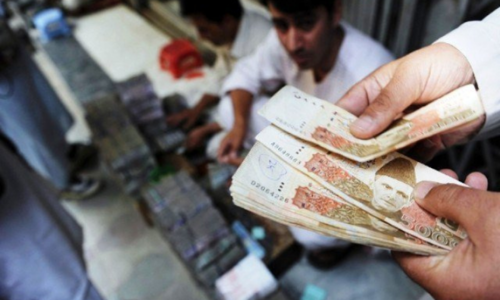ISLAMABAD: The Supreme Court has held that any notice to a taxpayer by the sales tax authorities should contain complete information about an audit dispute, as otherwise it will seriously prejudice a taxpayer’s defence.
In a six-page judgement uploaded on the Supreme Court website on Friday evening, Justice Umar Ata Bandial observed, “The purpose of serving a notice on a taxpayer is to notify him of the case against him and when such a document contains incomplete information, it can seriously prejudice the taxpayer’s defence.”
The decision came on an appeal by an industrial entity of Faisalabad, Messrs Fateh Yarn (Pvt) Ltd, against the order of the Faisalabad inland revenue commissioner. Through the appeal, the unit had challenged the Lahore High Court order (of May 24, 2017) passed in a sales tax reference.
The Supreme Court’s 1987 judgement in which it held that any order passed on the basis of a ground not stated in the notice was palpably illegal and void, the verdict recalled, adding that there was no reason why the same logic should not extend to an order imposing a tax liability for a time period not mentioned in the tax notice.
Verdict partly allows appeal against LHC order in sales tax reference
The petitioner had pleaded that the high court had answered the reference in favour of the commissioner on the basis of the questions which were neither rooted in law nor were discussed in the order of the appellate tribunal.
The dispute at hand revolves around the industrial entity registered under the Sales Tax Act (STA) 1990, which had claimed input tax credit (tax refund) to the tune of Rs72.9 million in four years when it deposited only Rs1.215m during the same period. On account of its abnormal tax profile, the company was issued a show-cause notice on April 19, 2006, seeking an explanation why the entire tax liability of Rs76.6 million for the period February 2001 till March 2005 should not be recorded.
Subsequently, multiple follow-up notices were sent to the unit but returned undelivered and as a result the company was proceeded ex-parte. On the basis of available material, the additional collector had on July 18, 2006 upheld the charge framed against the unit and ordered recovery of Rs76.56m from it for the period February 2001 and ending January 2006, also rejecting the tax refund claim of Rs72.9m.
Feeling aggrieved, the firm moved an appeal before the collector (appeals) who also affirmed the additional collector’s decision on Sept 11, 2006. Subsequently, appeals were preferred before the appellate tribunal that set aside the findings recorded on July 1, 2010 and thus the unit was discharged from having to pay the output tax liability of Rs76.56m and was also allowed to claim tax refund of Rs72.9m.
Against this order, the inland revenue commissioner filed a reference in the LHC, which had on May 24, 2017 reversed the decision of the appellate tribunal while endorsing the findings of the additional collector and collector (appeals).
Deciding the dispute, the Supreme Court held that the additional collector and collector (appeals) had concluded that since no reliable documentary evidence was provided by the unit to support its claim of tax refund to the tune of Rs72.9m, the same should be disallowed, also stating that whatever evidence was provided was fake.
However, the appellate tribunal ignored this material fact and committed a serious error, which called for rectification, the SC ruled, adding that no grounds were made to interfere with the LHC findings.
But the apex court also noted that the notice issued to the unit covered the period from February 2001 to March 2005 and it was an admitted fact that an audit of the petitioner’s records was conducted by the sales tax authorities for the period commencing in February 2001 and ending in November 2001 by virtue of which tax in the amount of Rs359,725 was ordered to be recovered from the unit. On the appeal, the collector (appeals) through its May 5, 2005 order had accepted the contention of the unit and set aside this order, an order which was never challenged by the sales tax department and thus it has attained finality.
Therefore, any further scrutiny of this period was barred by the doctrine of past and closed transaction and consequently this period was excluded from the purview of the orders passed by the collector and collector (appeals), Justice Bandial held.
According to the decision, it is an accepted fact that the allegation levelled against the unit was for the period ending in March 2005, but the subsequent orders have imposed a tax liability on the firm for the period ending in January 2006.
Subsequently, the SC partly allowed the appeal by explaining that the period for which audit was conducted (i.e. February 2001 to November 2001) and the period for which the original order exceeded the period covered by the show-cause notice from March 2005 to January 2006 stand excluded from the purview of the order of the assessing officer and the commissioner.
Published in Dawn, May 31st, 2021













































